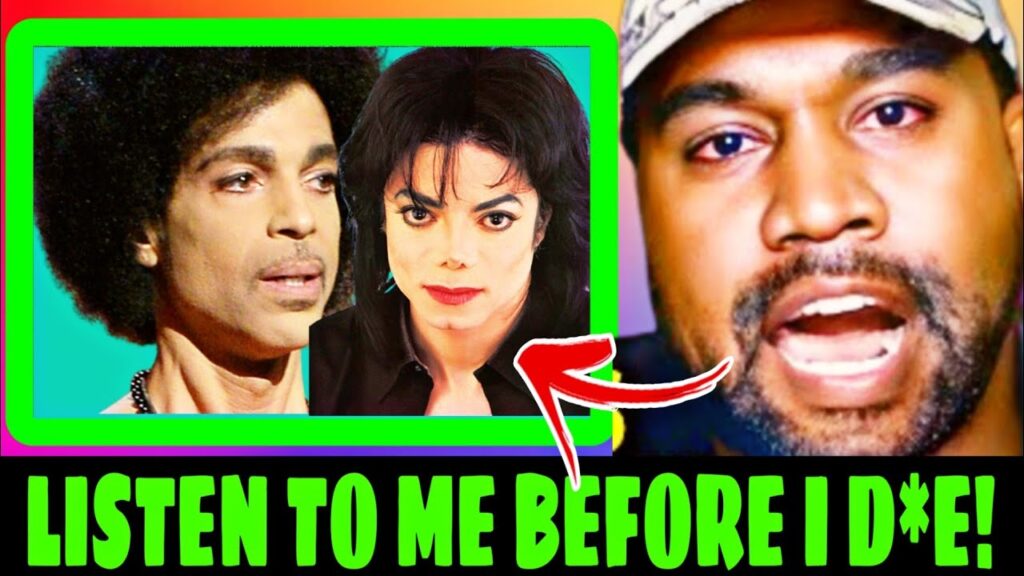Taking Control: Why Artists Must Own Their Masters
In a recent video, a notable figure in the music industry made a bold declaration: “So I’m leaving Sony a free agent, owning half of Sony.” These words, spoken by Kanye West, echoed loudly throughout the entertainment world, sparking conversations about ownership, control, and the future of music.
Scroll down to watch the video
For decades, the music industry has been dominated by record labels and executives who wield immense power over artists and their creations. But as Kanye West eloquently pointed out, the landscape is changing, and artists are demanding more control over their work.
At the heart of Kanye’s message is the concept of owning masters. But what does it mean to own your masters, and why is it so important?
What Are Masters?
In the music industry, a master recording, or simply “master,” refers to the original recording of a song. It is the definitive version of the track, containing all the nuances and intricacies that make it unique. Owning the master recording gives artists full control over how their music is used and distributed.
The Power of Ownership

When artists own their masters, they have the legal right to dictate how their music is used and monetized. They can license the recordings to third parties, negotiate favorable deals, and retain a larger share of the profits. Essentially, owning masters empowers artists to take control of their careers and maximize their earning potential.
The Pitfalls of Surrendering Control
Unfortunately, many artists unwittingly sign away their master rights in record deals, often lured by the promise of fame and fortune. In doing so, they relinquish control over their own creations, allowing record labels to profit from their work without their consent. This lack of control can have far-reaching consequences, both financially and creatively, leaving artists at the mercy of industry executives.
The Legacy of Legends
Kanye West’s impassioned plea for artists to own their masters is rooted in the experiences of music legends who came before him. Icons like Michael Jackson, Prince, and Tupac fought tirelessly for ownership and control of their music, recognizing the importance of preserving their legacy for future generations. Yet, despite their efforts, many of these artists faced obstacles and exploitation at the hands of record labels.
Empowering the Next Generation
As Kanye West aptly observes, the time for change is now. Young artists must be educated about the importance of owning their masters and asserting control over their careers. By taking ownership of their creations, artists can ensure that their voices are heard and their legacies are preserved for years to come.
A Call to Action
In light of Kanye West’s impassioned plea, it is incumbent upon all stakeholders in the music industry to support artists in their quest for ownership and control. Record labels, streaming platforms, and industry executives must recognize the value of empowering artists and work collaboratively to create a more equitable and transparent ecosystem.
Conclusion
The issue of master ownership is not merely a matter of contracts and royalties; it is a fundamental question of artistic autonomy and self-determination. As the music industry continues to evolve, artists must seize the opportunity to reclaim control over their creations and shape the future of music on their own terms. Only then can they truly fulfill their potential and leave a lasting legacy for generations to come.
Watch full video below:
News
Rapper Offset records NSFW video of himself playing with his wife Cardi B
Cardi B and Offset get physical in the rapper’s Instagram story Cardi B / Instagram Offset’s most recent story was something that nobody expected as he uploaded…
Cardi B shocks fans by revealing “Offset’s special liquid” is what makes her face smooth
A curious fan of Cardi B, on Twitter has asked her to reveal the secret of her smooth face. The fan asked the singer to tell her…
Cardi B Opens Up About REGRET Over Brazilian Butt Lift (BBL) Surgery
Cardi B, the renowned American singer and songwriter, recently shared candid insights into her regrets regarding a past plastic surgery procedure known as Brazilian Butt Lift (BBL)……
Cardi B in TEARS, CALL OUT Bad Bunny for LEAKING Secrets about her Body Odour
Cardi B Fires Back: The Drama Unfolds Cardi B, the powerhouse rapper renowned for her unapologetic demeanor and bold persona, has once again found herself in the…
Cardi B on “Nerve-Racking” Prep for Met Gala: “We Want Everything to Be Iconic”
During a recent interview, the Grammy Award winning rapper opened up on how she and stylist Kollin Carter approach fashion’s biggest night: “You need to remember us…
(H) Latto Blasts Fans Calling Her Dad A P3dophile Over Alleged Age Gap With Rapper’s Mom
Latto quickly shut down the potentially serious allegations. Latto is coming to the defense of her dad after accusers on X (formerly Twitter) have been calling him…
End of content
No more pages to load











